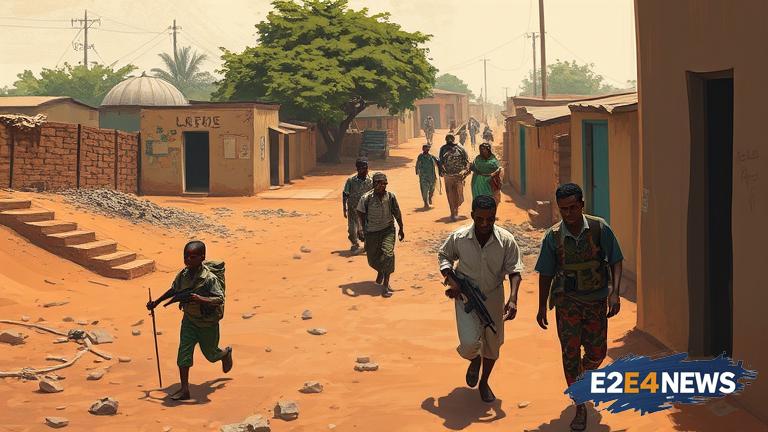A devastating jihadist attack has struck a town in Mali, prompting a mass exodus of civilians from the area. The attack, which was carried out by armed militants, has left many dead and injured, and has caused widespread destruction of property. The town, which was once a thriving community, is now a ghost town, with many of its residents fleeing in fear of their lives. The Malian government has condemned the attack, and has vowed to take action against the perpetrators. However, the government’s ability to respond effectively to the attack has been hindered by a lack of resources and a challenging security environment. The attack is the latest in a series of violent incidents to have taken place in Mali in recent months, and has raised concerns about the stability and security of the country. The United Nations has expressed concern about the situation in Mali, and has called for an end to the violence. The international community has also been urged to provide support to the Malian government, in order to help it to address the security challenges that it faces. Despite the challenges that it faces, the Malian government remains committed to finding a peaceful solution to the conflict, and has been engaged in talks with some of the militant groups involved. However, the talks have been slow to produce results, and the security situation in the country remains precarious. The attack has also had a significant impact on the humanitarian situation in Mali, with many people in need of assistance. The UN has estimated that hundreds of thousands of people have been displaced by the conflict, and that many more are in need of food, shelter, and other forms of assistance. The international community has been urged to provide support to the UN’s humanitarian efforts in Mali, in order to help to address the needs of those affected by the conflict. The situation in Mali is complex, and is influenced by a range of factors, including poverty, lack of access to education and employment opportunities, and a sense of marginalization among some communities. The Malian government has recognized the need to address these underlying issues, and has been working to implement a range of development programs and initiatives. However, the implementation of these programs has been slow, and the government faces significant challenges in terms of resources and capacity. The attack has also highlighted the need for greater international cooperation and support, in order to help to address the security challenges facing Mali and other countries in the region. The UN has called for a more coordinated and effective response to the crisis, and has urged countries to provide greater support to the Malian government and to the UN’s peacekeeping mission in the country. The situation in Mali is a reminder of the need for sustained and collective efforts to address the root causes of conflict and instability, and to support the development of peaceful and stable societies. The international community must work together to provide support to the Malian government, and to help to address the humanitarian and security needs of those affected by the conflict. The attack has also raised concerns about the role of external actors in the conflict, and has highlighted the need for greater transparency and accountability in terms of the support that is being provided to militant groups. The situation in Mali is a complex and challenging one, and will require a sustained and collective effort to resolve. The international community must remain committed to supporting the Malian government, and to helping to address the humanitarian and security needs of those affected by the conflict.
